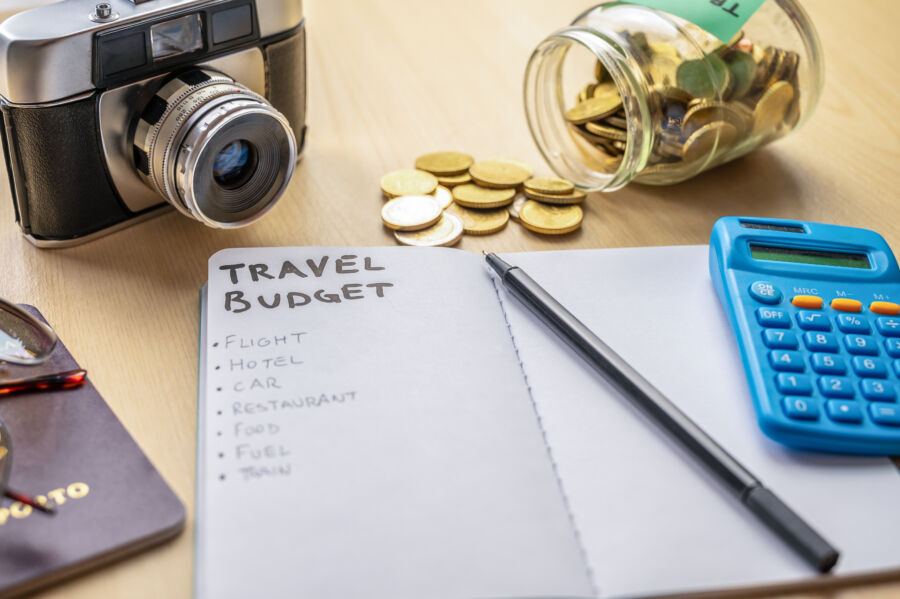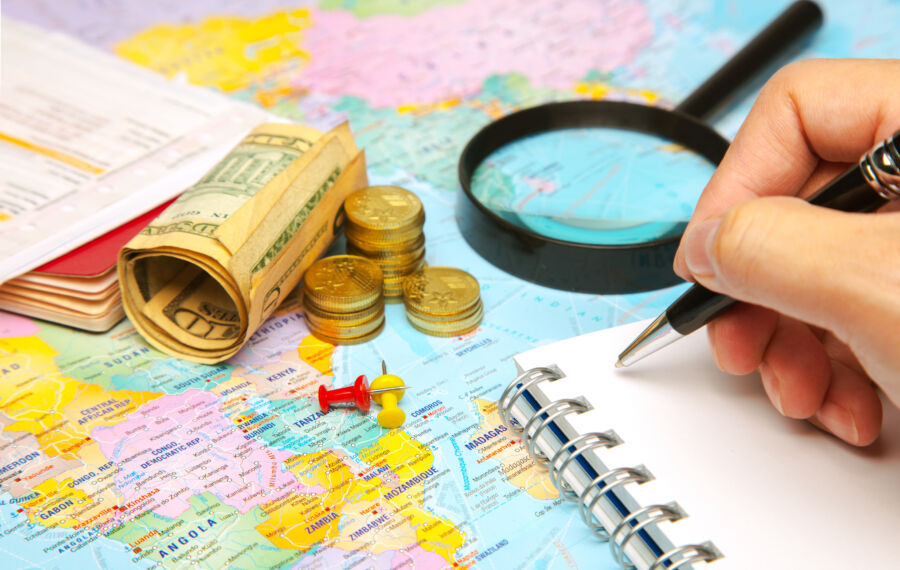
Can You Negotiate with Travel Agents for Better Deals? Tips and Tricks
Yes, bargaining with travel agents for improved deals is entirely possible. Indeed, many agents hold the power to tweak prices, propose upgrades, or deliver extra benefits to secure your reservation. And yet, just how much you can haggle hinges on things like your choice of destination, the time of the year, and the specific rules of the agent. Just remember, though – not all aspects are up for negotiation, but it can often lead to added value in ways you might not expect. Ready to learn more about the art of haggling?
Yes, it is possible to negotiate with travel agents for package deals, especially for last-minute bookings or high-value packages. Polite and charming negotiation and competitive quotes from different agents can often result in discounted prices or added value perks. Remember that the potential for negotiation may be higher with well-known travel agent chains offering late deals.

Table of Contents
- Can You Negotiate with Travel Agents?
- Advantages of Haggle with Travel Agents
- Tailored Deals
- Expertise and Insights
- Crafting the Fine Art of Negotiation
- Know Your Budget
- Research Market Prices
- Remain Flexible
- Establish Clear Communication
- Strategies for Effective Back-and-Forth
- Evaluating Your Travel Options
- Power of Positive Agent-Client Relationship
- Book Your Dream Experience
- More Travel Guides
Can You Negotiate with Travel Agents?

Many travelers often ask whether it’s possible to negotiate with travel agents for better deals. The good news is that the answer is a resounding yes! Many travel agents have a certain level of flexibility when adjusting prices, offering upgrades, or even throwing in additional perks to seal the deal. This could mean anything from a complimentary room upgrade at a hotel to free breakfast or exclusive access to certain amenities. However, it’s important to note that the extent of negotiations can vary based on several factors.
One key factor that influences your ability to negotiate with a travel agent is the destination you’re traveling to. For instance, some popular tourist destinations may have less wiggle room due to high demand, while lesser-known destinations may offer more flexibility in terms of negotiations. Timing also plays a crucial role in negotiation opportunities. If you’re booking at the last minute, the agent may have unsold inventory they are eager to fill, giving you a better chance at securing a great deal through negotiation.
Furthermore, it’s essential to recognize that not all travel agents operate under the same policies. Some agents may have more authority to adjust prices and offer incentives. In contrast, others might have strict guidelines set by their agency or organization that limit their ability to negotiate extensively.
For example, independent travel consultants or boutique agencies may be more flexible and open to negotiation, as they have more autonomy than larger corporate agencies that may adhere to fixed pricing structures and promotions dictated by their parent companies.
Understanding these key factors will help you navigate negotiations effectively with travel agents and give you a realistic idea of what kind of deals you can expect. Now, let’s explore some practical tips and strategies for successful negotiation with travel agents.
After understanding how negotiations with travel agents work, let’s examine the potential benefits of haggling effectively in this domain.
Advantages of Haggle with Travel Agents

Negotiating with travel agents can open a world of tailored deals for your unique travel needs. When you engage in the art of haggling, you’re not just aiming for a lower price; you’re seeking a travel package that caters to your specific preferences and requirements. This customization can elevate your travel experience, making it more enjoyable and stress-free.
Tailored Deals

Travel agents can access a wide range of resources and options, allowing them to create personalized packages that align with your desires. Whether seeking a family-friendly resort with all-inclusive amenities or a secluded hideaway for a romantic escape, haggling with a travel agent can produce curated deals that perfectly match your vision. This level of personalization ensures that every aspect of your trip is thoughtfully tailored to meet your expectations.
For instance, if you have specific dietary requirements or accessibility needs, a skilled travel agent can negotiate with accommodations and airlines to meet these needs. This attention to detail goes beyond what an online booking platform can offer and can make a significant difference in your travel enjoyment.
Expertise and Insights

In addition to crafting custom deals, travel agents bring expertise and insights. Their in-depth knowledge of different destinations, accommodations, and travel logistics can be invaluable when planning your trip. They can provide insider tips on local attractions, advise on the best times to visit certain locations, and offer guidance on navigating cultural nuances.
Furthermore, their connections within the industry often allow them to secure additional perks or benefits for their clients, such as room upgrades, complimentary amenities, or exclusive experiences. This added value enhances the overall quality of your journey and transforms it into a memorable and rewarding adventure.
While some may argue that online research can provide similar information, it’s important to recognize that travel agents often have access to exclusive insights and partnerships that may not be readily available to the general public. Their firsthand experience and close relationships with various suppliers enable them to offer expertise beyond what can be found through standard online resources.
Through thoughtful negotiation and collaboration with a knowledgeable travel agent, you’re not just seeking a better deal – you’re embarking on a journey enriched with tailored experiences and expert guidance that will elevate every aspect of your travels.
With these advantages in mind, let’s explore the fine art of negotiation when dealing with travel agents to unlock even more potential savings and perks.
Crafting the Fine Art of Negotiation

Negotiating with travel agents can be an enjoyable and rewarding experience. The key to successful negotiation is preparation. Before discussing with a travel agent, remember key tips to greatly enhance your chances of securing a favorable deal.
Know Your Budget

Knowing what you want to spend before starting negotiations is crucial. A clear budget enables you to guide the conversation and ensure that the options presented are within your financial means.
However, keeping your budget flexible is important, allowing for potential upgrades or unexpected opportunities during the negotiation process.
Research Market Prices

Informed negotiation is effective negotiation. Thoroughly researching market prices for your desired travel arrangements provides valuable knowledge, a powerful negotiation tool.
By understanding typical prices for flights, accommodations, and other components of your trip, you can negotiate from an informed position and leverage current incentives or promotions offered by various airlines or hotels.
Remain Flexible

Flexibility is key when negotiating with travel agents. Flexibility in your travel plans can open up opportunities for better deals. Being open to different travel dates or alternative destinations allows the agent to explore a variety of options to secure the best deal for you.
For example, being willing to consider flying out on a different day of the week or staying at a hotel slightly further from the city center may lead the agent to find significantly discounted rates that wouldn’t have been available otherwise.
Establish Clear Communication

Open communication is essential during negotiations with a travel agent. Clearly express your preferences, special requirements, and previous research regarding pricing and offers.
It’s helpful to create a list of non-negotiables alongside flexible elements of your trip. This allows you and the travel agent to understand where adjustments can be made, and compromises are required.
Armed with these vital tips, you’ll be well-prepared to negotiate fruitful negotiations with travel agents to secure the best possible deals for your next adventure.
With our negotiation skills primed and ready, let’s delve into effective strategies for navigating back-and-forth discussions with travel agents.
Strategies for Effective Back-and-Forth

Certain strategies can significantly improve the outcome and ensure a mutually beneficial agreement when negotiating with travel agents.
1. Establish Clear Objectives Before entering negotiations, you must clearly understand your goal. Whether it’s discounted rates, additional amenities, or flexible booking terms, knowing your objectives will provide a solid foundation for your negotiation strategy. This clarity will also convey a sense of purpose and determination during the negotiation process.
2. Communicate Assertively During negotiations, it’s important to express your needs and preferences assertively but courteously. Clearly articulating your requirements and expectations sets the stage for constructive discussions. In doing so, you pave the way for a productive exchange while maintaining respect and professionalism.
3. Foster Open Communication Establishing open lines of communication allows both parties to express their concerns and explore various options collaboratively. Promoting an environment where ideas can be freely exchanged creates opportunities to find creative solutions that cater to both parties’ needs. Keep in mind that effective negotiation is more about problem-solving than conflict.
4. Emphasize Long-Term Value Highlighting the potential for establishing a long-term partnership can be a persuasive incentive during negotiations. By indicating your willingness to engage in repeat business or referral opportunities, you present the travel agent with the prospect of ongoing revenue. This can significantly influence their willingness to offer favorable terms or discounts.
5. Be Mindful of Time. Time is valuable, which applies to you and the travel agent. By being respectful of their time and demonstrating consideration for efficient negotiations, you contribute to a positive and productive atmosphere. Moreover, by being mindful of time constraints, you display an understanding of the agent’s workload and priorities.
6. Flexibility and Adaptability Approach negotiations with a willingness to be flexible when exploring potential solutions. Being open to alternatives and demonstrating adaptability can lead to more favorable outcomes catering to both parties’ interests. It’s essential to balance advocating for your requirements and being receptive to alternative proposals.
In summary, navigating successful negotiations with travel agents requires strategic planning, effective communication, and a keen focus on mutual benefit. By implementing these strategies, travelers can enhance their ability to secure favorable deals while fostering positive relationships with travel agents.
Amidst the labyrinth of travel options lies a treasure trove of choices waiting to be unearthed—let’s embark on a journey to unravel the intricacies of evaluating these possibilities.
Evaluating Your Travel Options

When it comes to planning a trip, numerous factors should be taken into consideration before engaging with a travel agent. First and foremost, determine your preferred travel dates. Being flexible with your travel dates can often open up a wider range of options and might lead to more favorable pricing.
It’s also important to clearly define your accommodation needs. Consider whether you prefer a hotel, vacation rental, or an all-inclusive resort. Be sure to express specific requests such as room preferences, dietary restrictions, or accessibility requirements.
Understanding the purpose of your trip is also crucial. Are you traveling for leisure, business,s or a special occasion? Each of these purposes may require different accommodations and travel arrangements. By defining the purpose of your travel, you’ll be able to convey your specific needs to the travel agent effectively.
For instance, if you’re planning a romantic getaway, expressing the need for seclusion and privacy might guide the travel agent in suggesting intimate accommodations away from bustling city centers.
As you carefully evaluate your travel options based on these key aspects, you’ll be better equipped to effectively communicate your preferences and needs to the travel agent. This initial step sets the stage for productive discussions, leading to personalized and satisfying travel arrangements.
You can facilitate fruitful collaboration with your travel agent by understanding your travel needs and preferences. Now, let’s explore how nurturing a positive relationship with your agent can bring benefits beyond booking a trip.
Power of Positive Agent-Client Relationship
When working with a travel agent, the significance of maintaining a positive and communicative relationship cannot be overstated. It’s more than just about getting one good deal; it’s about nurturing a connection that can lead to ongoing benefits and enhanced experiences.
A positive relationship with a travel agent can open doors to exclusive deals that may not be available to the general public. Travel agents often have access to special promotions, discounted packages, and upgrades reserved for their valued clients. By building trust and rapport with an agent, you may be at the front of the line for these coveted opportunities.
Furthermore, a reputable travel agent who knows your preferences and travel history can provide tailored recommendations that align with your interests and needs. This personalized assistance goes beyond cookie-cutter vacation packages and allows for the creation of memorable, custom-tailored experiences. Whether it’s finding the perfect off-the-beaten-path adventure or securing reservations at exclusive destinations, a well-established agent-client relationship can elevate your travel plans to new heights.
Moreover, by fostering a positive dynamic with your travel agent, you may gain insights into upcoming travel trends, new destinations, or emerging experiences that haven’t yet hit the mainstream. This insider knowledge can give you a competitive edge in selecting the most desirable travel options before they become widely known.
For instance, imagine receiving early access to a newly launched luxury resort or being the first to know about limited-time promotions for luxury cruises. A proactive and fruitful agent-client relationship can offer these types of advantages.
Beyond the perks and discounts, maintaining a respectful and cooperative dialogue with your travel agent helps ensure smooth and stress-free planning. A foundation of mutual trust will equip your agent to handle unexpected challenges, resolve issues promptly, and provide assistance when needed.
Building and nurturing such a relationship requires effort and engagement from both parties. It effectively turns an ordinary business transaction into an ongoing partnership that enriches your travel experiences beyond what a single exchange could offer.
In conclusion, developing strong ties with your travel agent can give you access to exclusive deals and personalized assistance that elevate your travel experiences. It’s not just about finding good deals; it’s about creating lasting connections that remarkably enhance your travels.



